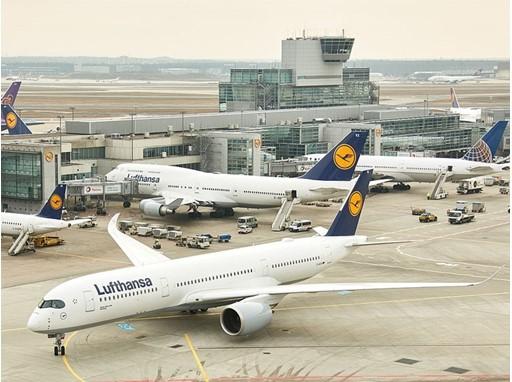
FRANKFURT—Lufthansa CEO Carsten Spohr said the airline has made ample preparations to avoid a grounding, in case an extraordinary general assembly rejects the company’s multi-billion bailout on June 25 and the airline is forced to file for insolvency proceedings.
Spohr told employees in an internal memo that his top priorities are to avoid bankruptcy, secure as many jobs as possible and ensure the group’s competitiveness in the future. The airline decided to pay out June salaries early that would normally have been due on June 26, a precaution should the airline have to file for protective shield restructuring in the coming days.
In a dramatic turn of events, Lufthansa and the federal government are facing unexpected opposition for the €9 billion ($10.1 billion) bail-out by the company’s largest shareholder, billionaire Heinz Hermann Thiele. The 79-year old entrepreneur, whose personal wealth is estimated at around $16 billion, has bought a stake in excess of 15% in the airline over the past weeks. No more than 38% of shareholders have registered for the assembly and a two-thirds majority is needed to approve the package.
Thiele met with Spohr and the respective ministers for finance and economic affairs, Olaf Scholz and Peter Altmaier, in Berlin on June 22 to discuss his issues. According to industry sources, the ministers detailed the plans and made clear that they do not intend to reopen negotiations while Thiele repeated his criticism and kept his options open. He is concerned that government influence will be too high, and the financial burden will be too heavy, for the airline to carry in his view. Thiele is also opposed to the government entering as a shareholder by purchasing stock at nominal value—a fraction of its current price.
Lufthansa is facing three alternatives, the most ideal being the extraordinary assembly of shareholders including Thiele approves the rescue deal, in which case bankruptcy can be avoided for the foreseeable future. If the plan is rejected, Lufthansa plans to talk to the federal government about “options” before filing for insolvency. One of these options could be to limit Berlin’s future stake in Lufthansa to 10%, for which no shareholder consent is needed. The government currently plans to take 20% in the airline.
If both the shareholder approval and a new rescue deal cannot be reached, the airline is seeking what is called protective shield restructuring, roughly the equivalent of the U.S. chapter 11 bankruptcy proceedings. Existing shareholders and subordinate creditors would likely lose almost everything, the airline could rid itself of pension and leasing obligations, collective bargaining agreements could be terminated and would have to be renegotiated. The airline would likely need massive bridge funding during the process, likely to be provided by the government and with strings attached that could include the option to convert loans into equity upon emerging from the proceedings.
Spohr wrote that “like surely for all of you, it is deeply painful for me that after the three most successful years in our company’s history we got into this hardly bearable, unique crisis of no fault of our own.”
Separately, talks with two of Lufthansa’s three unions, Vereinigung Cockpit (pilots) and UFO (flight attendants), were continuing as a June 22 deadline neared. The airline made clear that it needs to cut the equivalent of 22,000 of 138,000 positions globally to adjust to post-COVID-19 realities of a smaller air transport market.
Pilots in particular were considering the terms of a deal in which essentially all of them would agree to temporary part-time work to avoid forced layoffs. Any such agreement is complex because not all sub-groups of pilots are equally affected: A380 crews may never fly that model again and need conversion training at some point to another type if they are kept on board. A330/A340 pilots will have much less flying for an extended period given that all 16 A340-600s have been retired. The A330/A350 corps is likely to be back to some amount of flying earlier as the airline’s long-haul build-up is mainly based in the two types. The future of 747 pilots is also uncertain—most 747-400s may not come back after COVID-19 while the 747-8 fleet is to be kept in service. The A320 pilots are expected to get back to flying the soonest.
Talks also continue with UFO while the Verdi union, representing ground staff, has decided to withdraw from negotiations for now.





